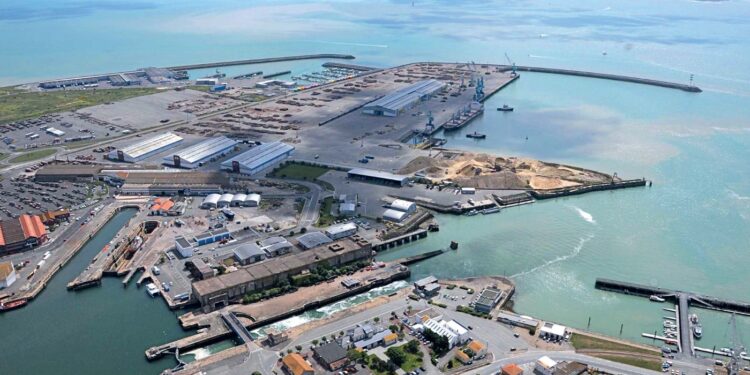In a strategic move to enhance energy security and support sustainable development, Morocco announced a tender for the construction of its first liquefied natural gas (LNG) receiving station at the Mediterranean port of Nador. The announcement was made during the 16th “Energy: A Strategic Pillar for Water and Energy Security and Sustainable Development” conference on April 23, 2025, in Ouarzazate. The project aims to expand gas infrastructure, ensure energy supply for industry and power plants, and strengthen Morocco’s position as a regional energy hub. It is part of the Kingdom’s efforts to reduce reliance on energy imports, promote renewables, and enhance energy connectivity with Africa and Europe.
During the conference, Minister of Energy Transition and Sustainable Development Leila Benali announced the tender for the LNG station and the development of a pipeline network for gas transport. The station will connect to the Maghreb-Europe Gas Pipeline, supplying LNG to the National Electricity and Drinking Water Company (ONEE) power plants and industrial zones in Kenitra and Mohammedia. It will also link to future Atlantic coast facilities and support the planned African Atlantic Gas Pipeline connecting Morocco to Nigeria via the Dakhla port.
While the minister did not disclose details such as the timeline or participating companies, she emphasized that the project is a critical step in Morocco’s strategy to meet its energy needs. According to the Ministry of Energy Transition, Morocco’s gas demand is projected to rise to 8 billion cubic meters by 2027, compared to 1 billion currently, highlighting the urgent need for infrastructure development.
The project pursues several strategic goals:
Energy supply security: Reducing Morocco’s 96% reliance on energy imports amid rising global prices due to geopolitical tensions.
Industrial support: Providing clean, sustainable energy to industrial zones to boost productivity and attract investment.
Energy connectivity: Supporting Morocco’s ambition to become an energy transport hub between Africa and Europe via the Maghreb-Europe and Atlantic pipelines.
Sustainable development: Aligning with Morocco’s transition to clean energy, complementing investments in solar and green hydrogen.
The LNG station at Nador port has significant economic and environmental implications: Energy security: Offering a reliable energy source and mitigating global market fluctuations.
Economic support: Creating direct and indirect jobs, particularly in the Nador region, and fostering regional development in northeastern Morocco.
Renewable energy integration: Combining natural gas with renewables, as Morocco ranks among the top five Arab countries in solar energy production.
Regional cooperation: Strengthening energy connectivity with Europe and Africa, positioning Morocco as a strategic energy partner.
Minister Benali praised the integration of energy, water, and food security, noting that the project reflects Morocco’s commitment to addressing ecological and geopolitical challenges. Conference participants lauded the project’s ambitious vision, noting its contribution to economic competitiveness. Economic analyst Yassir Al-Loui commented, “The Nador station is a bold step toward energy independence and new export opportunities to Europe.” Social media reactions were positive, expressing optimism for Morocco’s sustainable energy future.
Morocco is experiencing an energy sector boom, supported by investments in renewables, green hydrogen, and infrastructure projects like the Nador port. The project comes as the Kingdom navigates rising global energy prices and strengthens regional partnerships, particularly with Nigeria and European countries.
The tender for the Nador LNG station represents a strategic move to position Morocco as a regional energy hub, secure energy needs, support industry, and promote sustainable development, reflecting the Kingdom’s ambitious vision for energy independence and market stabilization.









